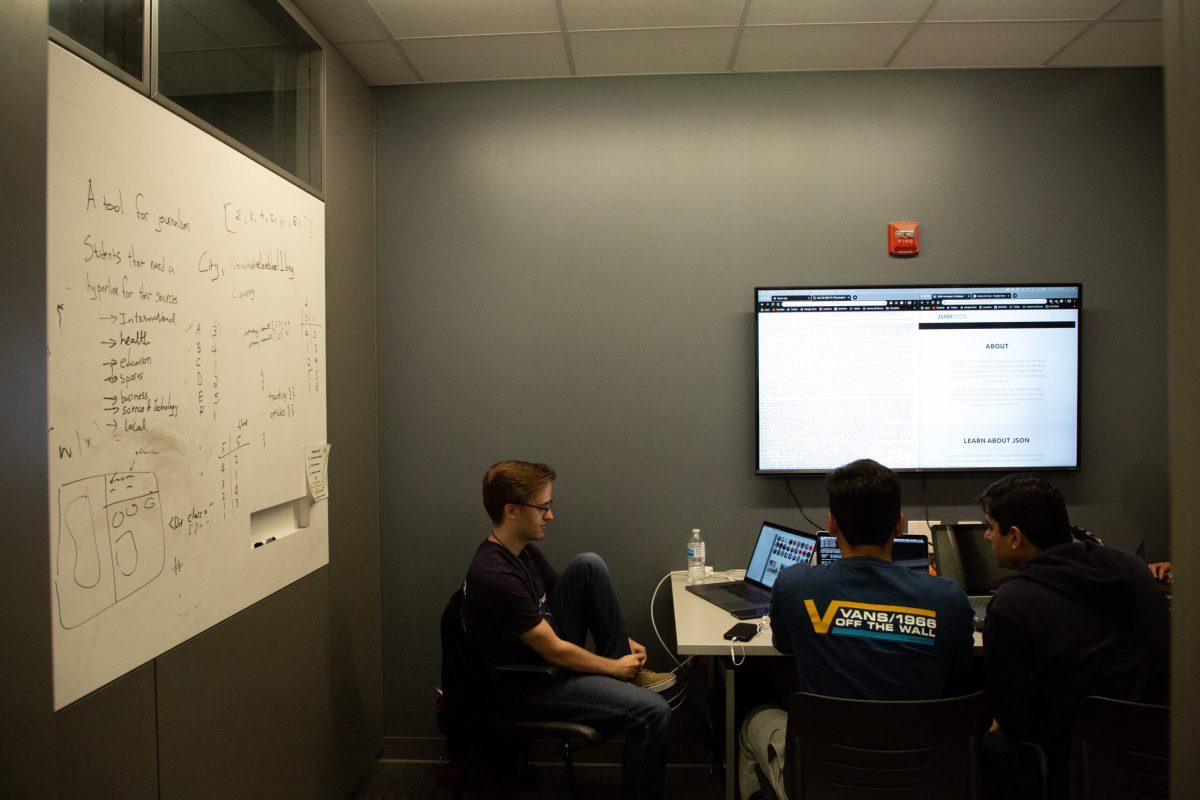Hackers came together for a 36-hour-long hackathon hosted by MU on Oct. 12 to 14.
TigerHacks is an annual event in which students from around the country flock to MU to stay up until the break of dawn creating and finishing projects together.Students compete on teams that have either been predetermined before the event or have come together through team building activities.
Teams will then build whatever they feel they can best execute. One major rule however, is that all code must be written during the event. Teams aim to build the best content possible whether it is a website, a mobile app or a computer program.
Each year, the hackathon has a specific theme. This year the theme was Journalism and Media. According to the TigerHacks website, this theme was necessary so that hackers will be prepared for the real world after taking part in the hackathon. Hackers had the opportunity to solve problems assigned by professors and professionals in the field that prepared them for real world computer science applications.
The event was open to any current undergraduate and graduate students, as well as any high school students 18-years-old or older. The event was also open to spectators at all times.
Coding experience was not necessary and the TigerHacks website even claims that the best teams draw from a large range of experiences and skill levels.
When teams were not grinding away on their projects, other events for the days were planned to add a fun aspect to the competition. Events ranged from laser tag and team building to “tech talks.” Participants also had the opportunity to take part in a video game tournament and hang out with other hackers during a midnight snack.
The main objective the hackers had for the hackathon was to win one of the many prizes available to teams. The prizes were divided by several categories depending on the hackers’ skill level and experience.
For example, the beginner division had prizes available for hackers that attended their first hackathon and have “proven themselves with well designed projects.” While the Major League Hacking division had prizes for winning teams who “go above and beyond by using specific advanced technologies.” Prizes included an Apple TV, gift cards, hacker gear, Google Chromecast and other items for entertainment or hacking needs.
Alex Andrei, a student at Lindenwood University, and his team worked on an application that would allow people to view news from different areas in the world by clicking on a location.
“We are working on a project to streamline news on a map so that people not familiar with the world can have news about the world and be more aware.”
Andrei and his team have competed in various other hackathons and he described a love for the freedom of the competition he loves the creativity it gives him.
“Instead of having a school assignment where you are asked to do something, you get to decide what you want to do and how to do it.” Andrei said.
This freedom was something that Alex Walling, a coach for Major League Hacking, the company responsible for operating a league for student hackathons, was hoping students would enjoy.
“The main thing I see with hackathons is it is a great way to work on the technology they are not teaching you in classes.” Walling said.
Walling, a former college student at University of Colorado Boulder, started his own hackathon while in school to give students the opportunity to work with students that had similar interests and passions.
“I started a hackathon on my own,” Walling said. “A lot of it was around the idea on enabling students to work on the things they are really passionate about and really wanted to learn, as well as giving them the opportunity to work with other passionate people.”
The hackathon hosted many different computer companies throughout the weekend to give students the chance to learn about other opportunities in the hacking field, as well as network with others.
The weekend gave hackers, an often misconstrued piece of computer science, a chance to collaborate, learn and network with people similar to them in order to advance the field.
With so much criticism and fear related to internet hacking, Walling saw hacking as something of a creative form.
“[Hacking] is a really creative process,” Walling said. “You are taking an idea and building it into something people would buy [and] people would use.”
_Edited by Morgan Smith | [email protected]_













